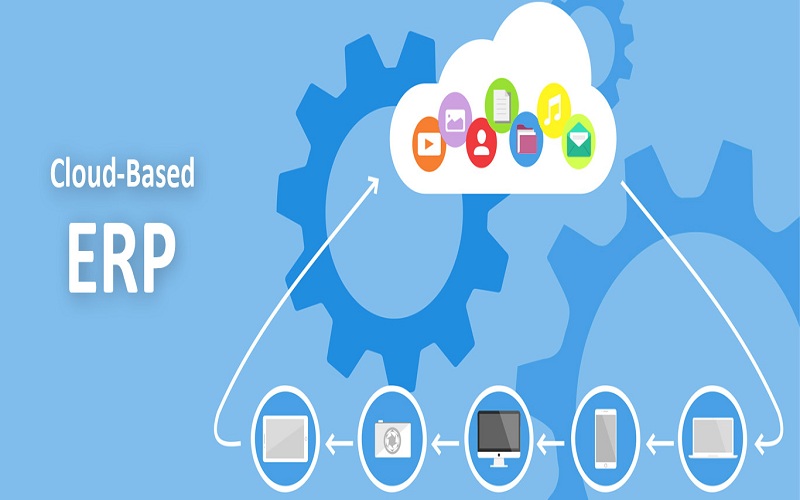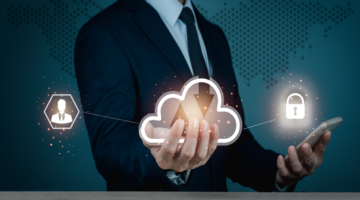
What is Cloud ERP?
Cloud ERP refers to an Enterprise Resource Planning (ERP) system that is hosted on the cloud rather than on a company’s local servers. Instead of purchasing and maintaining hardware and software on-site, businesses can access the Cloud ERP system over the internet, usually through a web browser. This means the ERP system is hosted on the vendor’s or a third-party cloud provider’s server, allowing businesses to focus on their core activities without worrying about infrastructure management.
Cloud ERP systems can be offered as a service offsite, or they may be hosted on-premises, depending on the company’s specific needs. Unlike traditional ERP systems, Cloud ERP solutions integrate and automate various business processes—such as finance, supply chain management (SCM), human resources (HR), and customer relationship management (CRM)—into a single, unified platform.
Types of Cloud ERP
- Public Cloud ERP:
- Hosted on shared cloud infrastructure where multiple organizations share the same resources.
- Typically more cost-effective, with vendors like NetSuite, SAP, and Oracle offering such services.
- Private Cloud ERP:
- Hosted on a dedicated cloud environment, either on-premise or in a third-party data center.
- Offers more control, security, and customization options, albeit at a higher cost.
- Hybrid Cloud ERP:
- Combines both cloud and on-premises solutions.
- For example, a business might use Cloud ERP for certain functions while keeping other critical processes on-premises. This offers flexibility and allows businesses to transition gradually to the cloud.
Examples of Cloud ERP Systems
- NetSuite
- SAP S/4HANA Cloud
- Oracle ERP Cloud
- Microsoft Dynamics 365
- Infor CloudSuite
What is SaaS ERP?
SaaS ERP is a cloud-based system that integrates various business processes into a single platform, accessible via the internet. Instead of hosting the ERP software on-premises or managing it through a private cloud, businesses subscribe to SaaS ERP and access it through a web browser. The software, data, and related infrastructure are hosted and managed by the ERP provider, allowing companies to focus on using the system without worrying about maintenance, updates, or security.
SaaS ERP operates on a subscription basis, where customers pay a recurring fee to use the software.
Types of SaaS ERP
- General-Purpose SaaS ERP:
- Designed to meet the needs of a broad range of industries and business sizes.
- Offers a comprehensive suite of core ERP functions and is highly configurable to accommodate various business processes.
- Industry-Specific SaaS ERP:
- Caters to the unique requirements of specific industries.
- Provides specialized modules and tailored solutions, reducing the need for extensive customization.
SaaS ERP solutions can also be categorized by market size, such as small market, mid-market, global, and enterprise-level SaaS ERP solutions.
To learn more about SaaS development services, connect with Informics digital, a leading SaaS provider. SaaS systems often use APIs to connect, communicate, and integrate with other applications, enhancing functionality and interoperability. For API development services, Informics Digital offers comprehensive solutions that enable seamless data exchange and enhance the flexibility of your software systems.
Examples of SaaS ERP Providers
- NetSuite
- SAP Business ByDesign
- Oracle ERP Cloud
- Microsoft Dynamics 365
- Infor CloudSuite
SaaS ERP vs. Cloud ERP: What’s the Difference?
Though SaaS ERP and Cloud ERP are often used interchangeably, they are not exactly the same. Here’s how they differ:
- Definition:
- Cloud ERP: Refers to ERP systems hosted on a cloud platform, including SaaS ERP, as SaaS is a part of cloud computing.
- SaaS ERP: Specifically refers to a Cloud ERP where the software is hosted by a vendor and provided as a service over the internet.
- Ownership and Management:
- Cloud ERP: Can be owned and managed by the vendor (as in SaaS) or as a private cloud solution controlled by the business itself.
- SaaS ERP: The ERP vendor owns, manages, and maintains the software, infrastructure, and data. Businesses subscribe to the service without owning the software.
- Customization:
- Cloud ERP: Offers more customization options, particularly in private and hybrid cloud models, allowing businesses to tailor the software to their specific needs.
- SaaS ERP: Offers limited customization to maintain the integrity of the multi-tenant environment.
- Deployment Speed:
- Cloud ERP: Deployment speed varies depending on the chosen model. Private and hybrid cloud ERPs may take longer due to customizations.
- SaaS ERP: Known for rapid deployment, as the software is pre-configured and ready for immediate use.
- Cost Structure:
- Cloud ERP: Costs vary depending on the model. SaaS ERP is generally less expensive, while private and hybrid cloud ERPs may require higher upfront investments.
- SaaS ERP: Involves a subscription-based pricing model that includes software, updates, maintenance, and infrastructure, usually with lower upfront costs.
- Scalability:
- Cloud ERP: Scalability depends on the specific cloud model. Public cloud ERP (including SaaS) is easily scalable, while private cloud solutions may require more planning.
- SaaS ERP: Highly scalable with minimal effort required from the user. Businesses can easily add or remove users as needed.
- Maintenance and Updates:
- Cloud ERP: Maintenance depends on the model. In SaaS, the vendor handles it, while in private cloud ERP, businesses may need to manage updates themselves.
- SaaS ERP: The vendor handles all updates and maintenance, ensuring users always have access to the latest version.
- Data Security and Compliance:
- Cloud ERP: Private or hybrid cloud ERPs offer more control over security and compliance, allowing for tailored solutions.
- SaaS ERP: Security and compliance are managed by the vendor, and businesses must ensure the vendor meets regulatory requirements.
- Vendor Lock-In:
- Cloud ERP: Offers more flexibility in vendor choice, reducing the risk of vendor lock-in.
- SaaS ERP: Vendor lock-in can occur as businesses become dependent on the provider for software, infrastructure, and support.
- Support and Training:
- Cloud ERP: Apart from SaaS, other models may require businesses to invest in their own support and training resources.
- SaaS ERP: Vendors typically provide customer support and training as part of the subscription package.
Which to Choose: SaaS ERP or Cloud ERP?
The choice between SaaS ERP and Cloud ERP depends on your business needs and growth strategy.
- Assess Business Needs: Consider operational complexity, required customization, and IT resources.
- SaaS ERP: Best for businesses with limited IT resources, offering easy implementation and management.
- Cloud ERP: Suitable for businesses needing more control and flexibility, especially with robust IT infrastructure.
- Growth Strategy: Choose the ERP solution that aligns with your long-term business objectives.
- SaaS ERP: Ideal for businesses expecting rapid growth and requiring scalable solutions.
- Cloud ERP: Better for stable growth with the need for tailored solutions and greater control.




